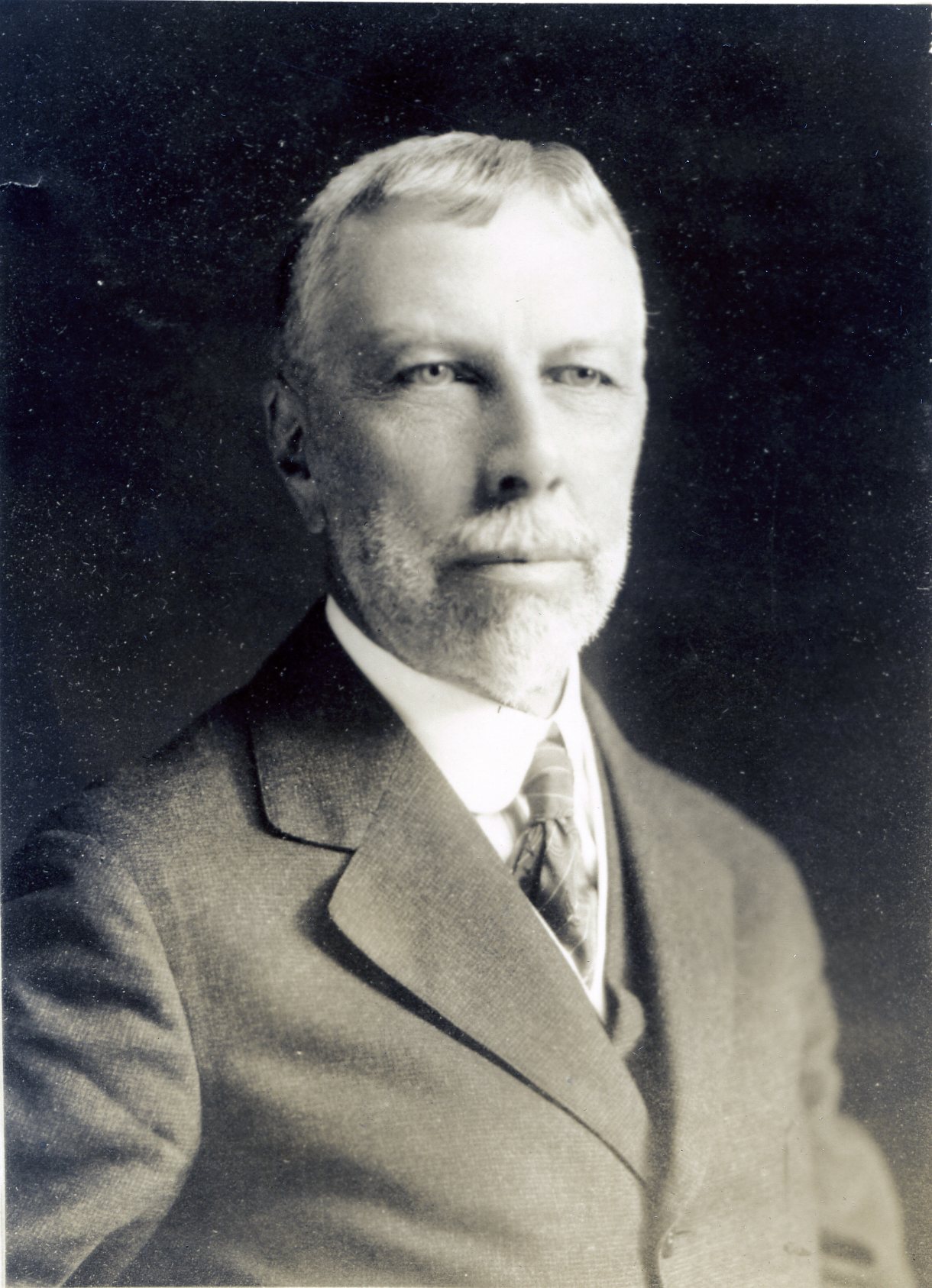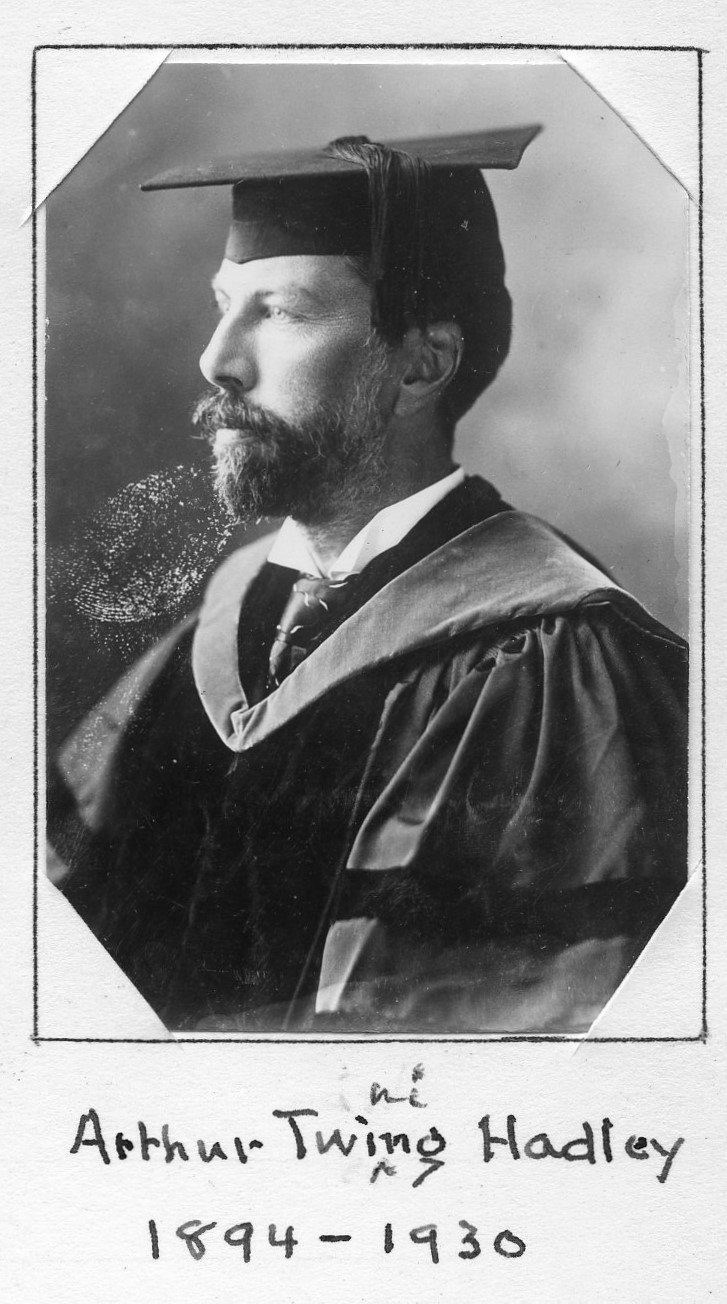Professor/President, Yale University
Centurion, 1894–1930
Born 23 April 1856 in New Haven, Connecticut
Died 6 April 1930 in Kobe, Japan
Buried Grove Street Cemetery , New Haven, Connecticut
, New Haven, Connecticut
Proposed by Horace White, Kinsley Twining, and Edward B. Whitney
Elected 3 March 1894 at age thirty-seven
Archivist’s Note: Father of Hamilton Hadley and Morris Hadley; cousin of Kinsley Twining; grandfather of Arthur T. Hadley and Barbara Hadley Stanton
Proposer of:
Seconder of:
Century Memorial
The delightful quality of Arthur Twining Hadley was that his individuality, no less in range of scholarship than in personal eccentricity, reproduced for these standardized days of ours the old-time college teacher and the old-time college president. Whether Hadley, when he was placed at the head of Yale in 1899, was expected to take the road in quest of endowment funds, like other newly-installed college executives of that highly practical period, is not clearly of record. It would have been as logical to have imposed the task on Jowett of Balliol or Mark Hopkins of Williams. In scholarship as in mannerism, Hadley’s reversion to the old type of university instructors was complete. Himself son of that other Hadley whose text-books used to be to some of us alternately inspiration and torment of the course in Greek, it was natural that our own Hadley should have mastered an amazing list of both ancient and modern languages. His capacity even for conversing in many of them was occasion for one of the University’s traditions. Guest at a formal function in New Haven, so the story goes, the Swedish ambassador, himself a scholar of parts, read to the collegiate gathering a complimentary address in Latin. When the speaker ended, Hadley rose and returned the compliment extemporaneously in the same classic vernacular. The achievement met with due recognition from another cultured guest, who, when his own turn came, congratulated Hadley on his knowledge of the Swedish tongue.
If Hadley’s extraordinary scholarship was Nineteenth Century learning brought to life again, the scope of his inquiring instinct was as truly that of the Twentieth. Instructor successively in Greek, German, Roman law, logic and political science, the particular achievement for which he is likely hereafter to be remembered, his practical grasp of the transportation problem was in all respects of the present era. The combination was unusual; imagination cannot conceive Porson or Plumptre qualifying as chairman of a commission to consider railway valuation, as associate editor of the country’s principal railway journal, or as active director of the New Haven Railway. Yet even these very modern affiliations did not change Hadley’s personality. In the railway committee room or on the baccalaureate platform or at the Century lunch-table the oddity of speech, the awkwardness of manner, the twist of features when he spoke emphatically, prevailed as they used to do with the all but legendary scholars of a century or two ago, whose mannerisms were remembered after them as vividly as their intellectual achievement, and with greater fondness.
Alexander Dana Noyes
1931 Century Association Yearbook


